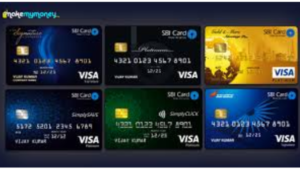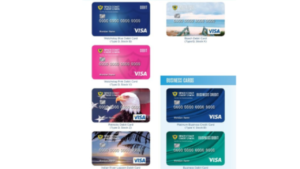
There are a ton of scams that exist around the world. They operate through so many mediums and channels, such as through telephone or the Internet. Regardless, the goal is simple: to scam victims and extract as much money out of them as possible. Unfortunately, these will continue and there will always scammers that will find a new way to repeat the process. For as long as that happens, we’ll be doing our best to make you aware of them so you don’t fall victim to a scam yourself.
One of the scams will cover today pertains to Visa Credit and Debit Cards. There are a few variations of this type of scam in particular. One of the more notable scams is when you receive a call from someone claiming to be from Visa to inform you of suspicious activity on your card. Considering how serious of an issue like potentially fraudulent activity happening on debit and credit cards, it can put someone on edge. Scammers have decided to take advantage of such a situation where a card user is in a state of panic that they’ll do what is necessary to take care of the issue.
We’ll show in detail how these types of scams work, who is affected by them, and how you can protect yourself in the event if you end up being targeted.
How Visa Card Scams Started Out:
A Visa Card scam is one of the many versions of credit card fraud that exist. Since this type of credit card scam takes place over the telephone, they can be dated back to a couple decades. However, there is no specified date on when they rose to prominence. These days, credit card scams don’t always happen on the phone. Thanks to some technological advances, some of them can happen in places where you least expect it.
Types of Visa Card Scams:
There are a few variations of Visa Card Scams that exist. Here are a couple of major scams that you should be made aware of:
The Security Scam
This is when a scammer that poses as a customer service representative from Visa will call their potential victim to inform them of suspicious activity on their card. The complex thing about this is that while legitimate credit card companies will notify you of any potential suspicious activity, it can be hard to distinguish a real security alert from a false one.
To begin, the scammer will make a claim that you made a large purchase that may be considered suspicious. They will ask you if you made such a purchase. To which you would reply, “no”. Next, the scammer will say that they will work to issue a credit to your account. They will mention that the credit will appear on your next statement and will be sent to your address. Since they have your address, they’ll read it to you to make sure if it is the correct one. To which you reply, “yes”.
Next, the scammer will claim that they have begun a fraud investigation. They’ll give you a 1-800 number and will instruct you to ask for security if you have any questions. This is also followed with a 6-digit number known as a “control number”.
The next part is where you really need to pay attention to. The scammer will then ask for verification to ensure that you are indeed the actual card owner. They’ll ask you for seven numbers: the last four of your Visa card and the 3-digit security code on the back of your card. What they’re actually looking for is that security code. Do not give them the numbers. Your next step is letting them know that you will call Visa directly for verification of this conversation. Once you end the call, immediately call the real Visa customer service line and let them know of what happened.
In the event if you had a slip up and gave the security code to the scammer, your next step is calling the Visa Security Department. The phone number will be on the back of your card. There’s a good chance that the scammers have hit you with a charge (usually a large amount like $500). Next, you will need to file a fraud report and close your account. Visa will issue you a new card number. Once you’ve settled things on the Visa end, you will need to contact law enforcement and file a report. It takes a few minutes for a scammer to create as much chaos as possible, especially when it comes to your Visa card.
The “Skimmer”:
This is a type of scam that can happen to any of us. This isn’t one that happens over the phone. We can become victims with just one innocent swipe of our card. Whether it’s at a gas station pump or at a card terminal in a retail store, it can happen. The way it works is scammers will install a skimming device that is designed to capture your card information. One of their favorite places to install them are ATM machines. Also, self-checkout card terminals in major retail stores is also a favorite place for scammers. Once they have the information in their hands, they are clear to make fraudulent charges to your account. Believe it or not, there are some places where scammers can recruit cashiers or waiting staff at restaurants to take part in these types of scams.
To prevent yourself from being a victim of this type of scam, be sure to check the card terminal for any damage before sliding your card. Be sure to cover the PIN pad as you enter your number in. That’s because scammers can install cameras that are located near the keypad.
Other Scams To Be Made Aware Of:
Confirming Info For Your EMV Card: These days, most card companies are installing chips on their cards to ensure that credit card fraud is reduced to a minimum, if not zero. Scammers will pose as issuers and email a warning out to customers saying that they need to update their information before they can receive their new card. Never give any card information over email or click on any suspicious links, as they may be used for phishing purposes.
Interest Rate Reduction: No one would ever say no to paying less on their credit card bill. Knowing this, scammers take advantage of this and will call them using a pre-recorded message promising them a reduced interest rate so they can pay off their card faster. Regardless if you accept the service or decline it, you may still be charged since there is a good chance that they will have your credit card information.
What To Do If You Are A Victim Of A Visa Scam:
If you have been contacted by scammers or believe to have been a victim of a scam, it is important to call the Visa Security Department. Taking the necessary precautions will prevent you from having to deal with more fraudulent charges. At the same time, you will also be taking measure to protect your identity. While your affected account will be closed, Visa will issue you a new number. Also, be sure to contact your local law enforcement agency and file a report. You should also notify the three credit agencies (if the affected Visa is a credit card) about what has happened. Failure to do so may harm your overall credit rating.

My Final Conclusion:
Visa scams will continue to exist for as long as they can. And it is important to stay one step ahead of them. If you are ever contacted by someone claiming to be from Visa or any credit card company, do not give out any credit card or other information. The only time you should give your information over the phone or via email is when you are initiating contact with the credit card company yourself.
Do you have any experience with being scammed by any of these 4 Visa Card Scams? Do you have any questions in particular concerning these 4 Visa scams that I’ve just reviewed? If you do, please don’t hesitate to leave your comment or questions below, and I will be more than happy to get back to you.
Were you looking for my top, legit work online recommendation instead?
Click here To Read My # 1 Recommendation!
If you enjoyed reading and educating yourself on the “4 Visa scams you should know about”, please don’t limit yourself. Feel free to learn “all about” a different important, online money making category like:
“All About” Getting Paid To Watch Videos
“All About” The Cash4Gold Business
“All About” Rebate Processor Jobs
“All About” Online Investment Scams
And Much More..



FYI-most likely fraud. Wed.11/30/20 10:34 a.m. 726-800-2470 “Name unavailable” Recorder message “You have been charged $379.99 on your Visa Card. If you made this purchase just hang up and your order will be shipped. If you did not, call Amazon support at 726-800-2470.” [I did test that number from another phone & it will not take 1- before the number, i.e. bogus number.] Interestingly, I made an Amazon purchase the night before using Master Card, but for a lesser dollar amount. This info is shared possibly to assist you in some way. No reply is expected. Thank you.
A numeral (1) preceding the area code indicates an international call. It will be very difficult or near impossible to reverse the call to determine its origin. Your caller ID will most likely display unknown name or suspected spam etc.
Thank you Archie for providing that valuable information.
I have been scammed by unknown scammers. they took all of the $750.00 I bought. BEWARE!
Hello there sir and thank you for commenting on our site. Sorry to hear that you lost that amount of money Dan! That must have devastated you. But we definitely appreciate you sharing your experience. Others will find this very useful. Good luck with everything and let us know if you need anything. Peace and blessings..